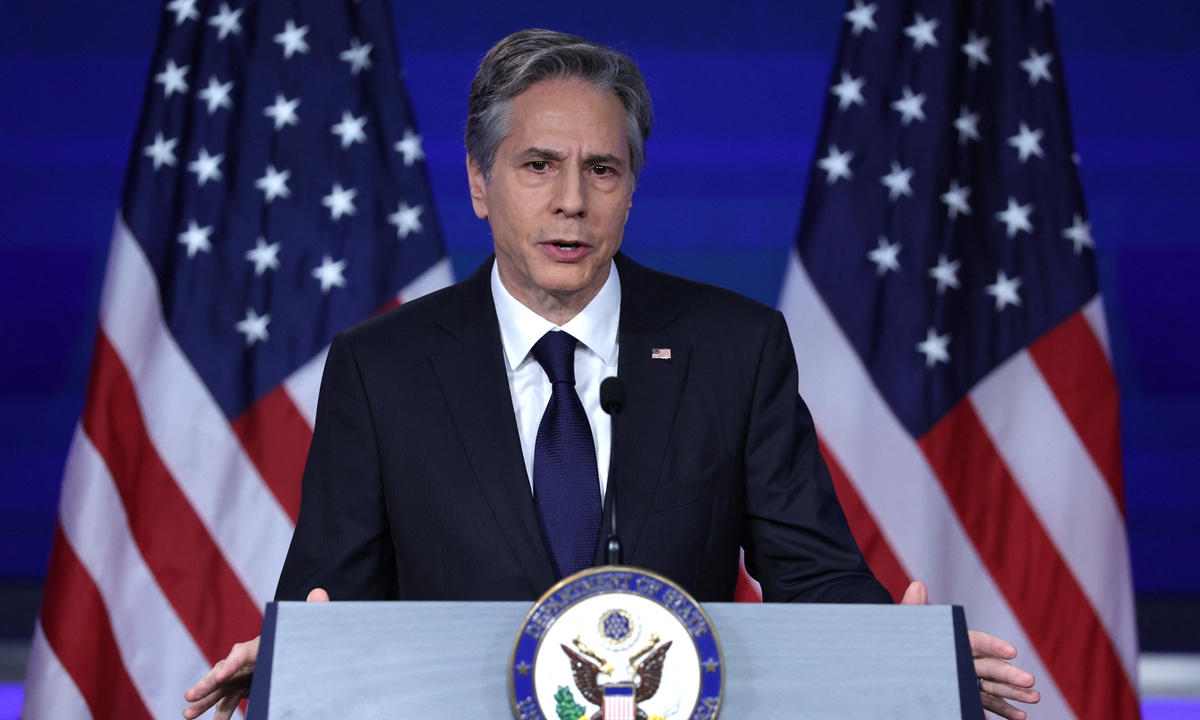Groundless US Appeal Disrupts WTO Functionality
(China) on 31 January 2023
by Huo Jianguo (link to original)
The WTO confrontation between Chinese and U.S. representatives received extensive international media coverage. Due to the complex historical background and legal issues of relevant WTO cases, I will not address them here, but anyone familiar with U.S. trade policy and the role of the U.S. in the WTO will come to the obvious truth.
Everyone remembers the extreme trade protectionism and unilateralism of the Trump administration. At that time, the U.S. launched a trade war against China. By invoking the authority of Section 301 of the Trade Act of 1974, tariffs were hiked on a wide range of imports from China, as well as other countries. The U.S. also imposed punitive tariffs under the pretext of national security; however, the U.S. levies these punitive tariffs in order to obtain concessions and compromises from other countries. It was against this backdrop that the U.S .— Steel and Aluminum Products case emerged.
After Joe Biden took office, his administration repeatedly proclaimed a desire to support a rules-based international order. The U.S. announced the cancellation of some of the levies, but did not make a full correction of this trade protectionist practice, which led to the subsequent dispute prosecution and panel ruling. Not only has the U.S. failed to take advantage of the opportunity to make remedial adjustments, but it has challenged the ruling of the WTO, completely contrary to the rules-based international order often espoused by the U.S. Once again, this illustrates that any international order championed by the U.S. is actually only its own house rules.
U.S. engagement with the WTO can be puzzling, but upon closer examination the U.S. is simply and painstakingly trying to shape the WTO to conform to its own wishes. Recently, the U.S. repeatedly claimed to be working hard for WTO reform and the restoration of the dispute settlement mechanism, the Appellate Body. However, as all the world knows, it was precisely the endless blocking of nominations of WTOAB members by the U.S. that paralyzed the body. The U.S. knows that the WTOAB is no longer working properly, yet it keeps submitting appeals to it, which is meaningless and disturbs the world's perception of the direction of WTO reform.
Today’s unstable world is undergoing a period of adjustment. History shows that true multilateralism and free trade are the fundamental guarantees for maintaining world peace and economic prosperity. Multilateralism is undoubtedly the prerequisite for global governance, and multilateralism must be anchored in free trade. Therefore, there has been a broad consensus toward accelerating WTO reform; the 12th WTO Ministerial Conference last June included this acceleration in its agenda.
Today, restoration of WTO functionality faces two formidable tasks. The first is WTO authority: to fully empower its decision-making mechanism, the institution should be strengthened and its functions and powers clarified. To serve a supervisory role over rule implementation, WTO negotiation and trade review mechanisms must be enhanced, especially the WTOAB, which merits top priority. The establishment of a fair, just, authoritative and enforceable Appellate Body is the key to ensuring the implementation of the multilateral rule system. These reforms require the joint efforts of all WTO members, and the top trading countries should be the most actively involved.
The second formidable task is to reform the rules. This extremely complex task requires more consultation and should build upon current WTO operations. This would include clarifying the classifications for state-owned enterprises and monopolies, as well as clarifying the rules for industrial policies, subsidies, the digital economy, e-commerce, environmental protection and carbon emissions.
Judging from the current situation, there is an obvious need to tackle the above two tasks in the right order. Only by first building and redoubling the WTO's capacities will the foundation be laid for the improvement of the rules. When possible, special attention should be paid to finding the greatest common denominator to benefit the interests of all members. What is most critical is that once successful negotiations are reached, the great powers must set a positive example in implementing and adhering to the agreements, firmly maintaining the multilateral rule system. If the rules apply only to small powers but certain big powers override the rules at will, then the rules are there in name only.
The author is the former president of the Chinese Academy of International Trade and Economic Cooperation.


